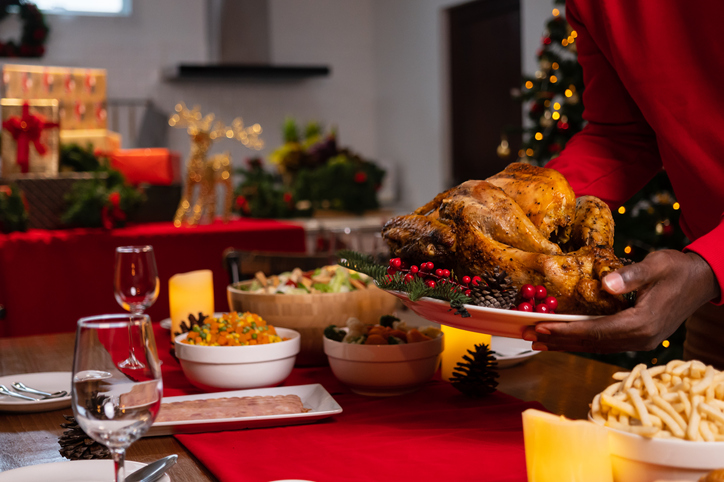
Source: Ton Photograph / Getty
Happy Holidays! We have found ourselves saying goodbye to the traditional holiday greeting “Merry Christmas,” and embracing a cheerful “Happy Holidays” instead. Everyone doesn’t celebrate the same way, so this year learn how to make your holiday gathering more inclusive.
First, let’s talk holidays (in order of celebration):
Hanukkah
Hanukkah is the eight-day Jewish Festival of Lights that typically takes place between late November and late December. Jews celebrate it by lighting the menorah, playing the game of dreidel and eating special holiday foods like latkes and sufganiyot.
By definition: Hanukkah, or the Hebrew word Chanukah, means “dedication.” The holiday commemorates the rededication of the Holy Temple in Jerusalem. This year it began on Sunday, Dec. 18 and ends on the evening of Monday, Dec. 26.
Yule
“Yuletide carols being sung by a choir!”
Yule is a festival historically observed by the Germanic peoples. Scholars have connected the original celebrations of Yule to the Wild Hunt, the god Odin, and the pagan Anglo-Saxon Mōdraniht.
Yule comes from the old Norse jól and Old English géohol which was a season of hunting after the harvest was done. This fell in what we now call December so it eventually became associated with the Christmas Holiday. The first recorded use of the noun Yuletide, according to Wikipedia, was in 1475.
By definition: The archaic term for Christmas. The celebration is held from Wednesday Dec, 21 to Sunday, Jan. 1.
Winter Solstice
Winter Solstice is closely tied to Yule and could be referred to interchangeably. The occasion is marked with sweet and traditional winter solstice rituals—from brewing mulled cider and eating winter solstice foods, to lighting lanterns, reciting winter solstice quotes, striking special yoga moves, and setting intentions for the season ahead.
By definition: The winter solstice, also called the hibernal solstice, occurs when either of Earth’s poles reaches its maximum tilt away from the Sun. This happens twice yearly, once in each hemisphere. It occurred on Dec. 21.
Christmas
Many people of the Christian faith celebrate Christmas, which is known as Jesus’ birthday. Christmas lovers may shout, “Jesus is the reason for the season!” People gather over food with their families and exchange meaningful and heartfelt gifts.
By definition: Christmas is the annual Christian festival celebrating Christ’s birth, held on Dec. 25 in the Western Church.
Kwanzaa
Kwanzaa is an annual week-long celebration of African-American culture. It is not a religious holiday, it’s a cultural one. People from all different religious backgrounds — including African spiritual traditions — celebrate Kwanzaa.
It was created on the 1960s by activist Maulana Karenga, based on African harvest festival traditions from various parts of West and Southeast Africa. Kwanzaa is a time of learning, family and celebration. During the week of Kwanzaa, families and communities come together to share a feast, to honor the ancestors, affirm the bonds between them, and to celebrate African and African American culture.
By definition: Kwanzaa is secular festival observed by many African Americans from Dec. 26 to Jan. 1 as a celebration of their cultural heritage and traditional values.
How to Host a Function For All:
- Don’t call it a holiday party at all. Get creative and refer to it as a “Winter Celebration” or “End of the Year” get together.
- Choose a neutral date that doesn’t fall on any of the holidays.
- Choose decorations carefully or be sure to include something to represent each holiday.
- Make gift exchanges optional for those who don’t engage in gifting.
- Provide food and drink options suitable for everyone. Consider dietary restrictions based upon people’s preferences and religious beliefs. If you choose to serve alcohol, have a mocktail situation as well.
- Plan fun activities. Maybe offer a game of trivia so everyone can learn about each culture’s holiday/winter traditions.
- Make it a potluck. Have everyone bring a special cultural dish.
Whether you are hosting a friendsmas or wanting to educate yourself at the next company party, we hope these tips help you have the best winter extravaganza to date.
Comment some of your suggestions for holiday inclusivity below.
















